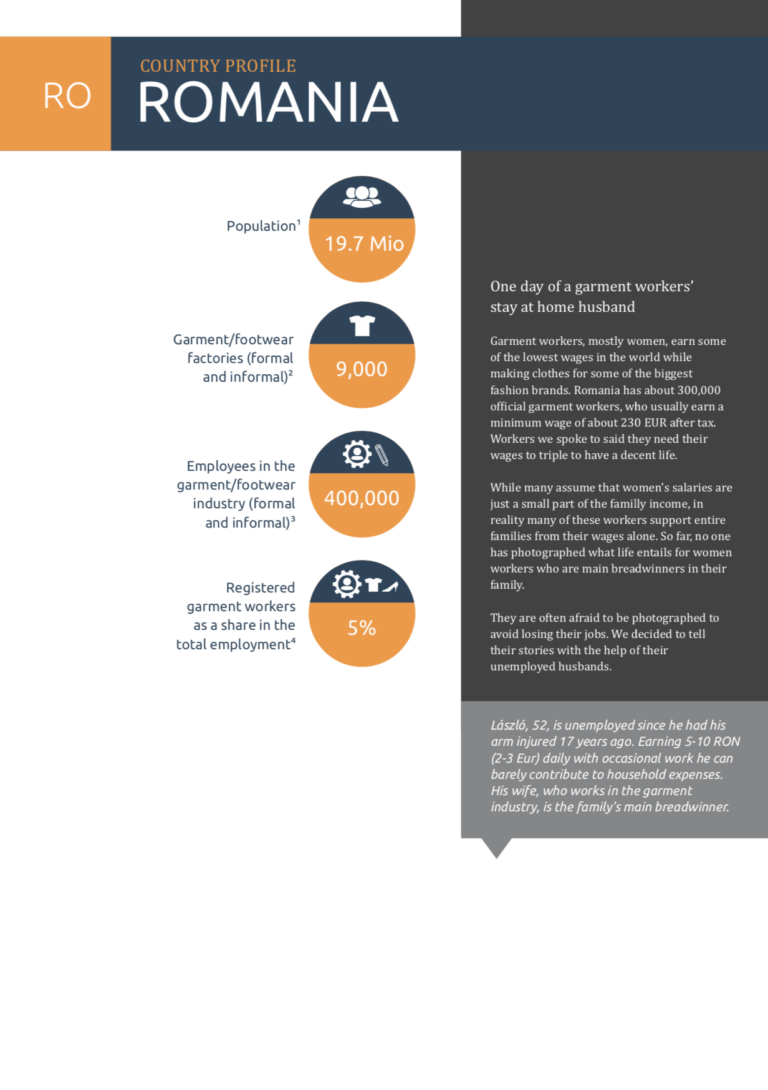Garment workers, mostly women, earn some of the lowest wages in the world while making clothes for some of the biggest fashion brands. Romania has about 300,000 oficial garment workers, who usually earn a minimum wage of about 230 EUR after tax. Workers we spoke to said they need their wages to triple to have a decent life.
While many assume that women’s salaries are just a small part of the familly income, in reality many of these workers support entire families from their wages alone. So far, no one has photographed what life entails for women workers who are main breadwinners in their family.
They are often afraid to be photographed to avoid losing their jobs. Clean Clothes Campaign decided to tell their stories with the help of their unemployed husbands.

